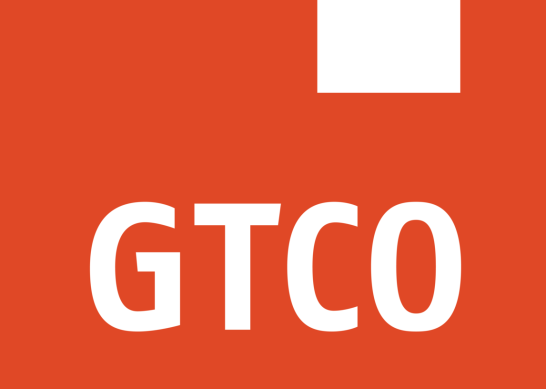The intersection of business development and forex: How entrepreneurs can turn cash flow into capital growth
By Temitope Ijibadejo
Copyright businessday

In today’s fast-paced world economy, business owners face more than just running their companies; they need to come up with smart ways to keep and boost their money. This job gets harder in growing economies like Nigeria because of rising prices, shaky money values, and not many chances to get normal loans. Banks charge too much interest, big investors are hard to find, and borrowing from friends often makes money problems worse.
In this tough situation, the foreign money market (Forex) has shown up as a new place not just for people who like to take risks, but also for business owners looking for steady ways to turn their cash into more money over time. With more than $7 trillion changing hands every day, Forex gives the most chances to buy and sell quickly. But for people who own businesses, its real worth isn’t in taking crazy risks but in joining in as part of bigger plans to grow their business.
This article looks at ways business owners can turn Forex from a side job into a key money-making tool. By grasping its power and weaving it into business plans, cash flow can grow into a reliable source of extra funds. This boost can spark new ideas, help the business grow, and make it stronger.
Forex as a strategic capital growth tool, not just speculation
Entrepreneurs are well-acquainted with risk. Whether it’s rolling out a new product, bringing in fresh talent, or venturing into uncharted markets, taking calculated risks is fundamental to business growth. Forex, often seen as a high-stakes gamble, can actually resonate with this entrepreneurial spirit when approached with a disciplined mindset.
At its essence, Forex revolves around understanding currency fluctuations. For entrepreneurs in import-heavy economies like Nigeria, these shifts are very real—they impact costs, pricing, and profit margins directly. Take, for instance, a sudden drop in the naira’s value; it could double the cost of raw materials in a flash. For these businesses, engaging in Forex isn’t just about chasing quick wins; it’s about managing risk. By employing hedging strategies or keeping reserves in more stable currencies, entrepreneurs can protect their cash flow from volatility, safeguarding their working capital.
But Forex isn’t just about hedging; it also opens doors for gradual capital growth. Many trading platforms have low entry barriers, allowing entrepreneurs to invest small, manageable portions of their surplus revenue into disciplined trading. With effective risk management—like setting stop-loss orders, diversifying across different currency pairs, and establishing clear exposure limits—any profits can be reinvested back into the business. While this might not replace traditional financing, it can foster a steady stream of capital growth, especially when compounded over time.
What truly makes this approach impactful isn’t just the potential returns but the mindset it nurtures. Trading requires analytical thinking, patience, and adaptability—qualities that are essential for entrepreneurial resilience. In this way, Forex transforms into more than just a financial tool; it becomes a training ground where business leaders refine their decision-making skills in the face of uncertainty.
Integrating forex into business development strategies
For Forex to truly be a vehicle for capital growth, it mustn’t exist in a vacuum. Effective integration is crucial – Forex must be seen as simply another part of an overall business development strategy. This will require careful planning, keeping within risk tolerances, and purposefully aligning with their business.
1. Strengthening cash flow resilience.
Cash flow is the oxygen of any business, and volatility is consistently trying to kill it. By carefully investing a portion of earnings into Forex positions that align with their currency debts and delays, they can help insulate themselves from being shocked. For example, a fashion retailer in Lagos, where they source the fabric in China, would be able to hedge potential losses from depreciation in the naira by holding up to 50 percent of their reserves in U.S. dollars or yuan. The objective is to profitably shield against losses while maintaining a steady pricing structure for their customers.
2. Financing growth instead of diluting capital.
Many entrepreneurs believe that seeking investors also means deliberate dilution of their own equity. Profits from a proper Forex trading discipline can provide a funding source for growth opportunities and expansion. Even modest gains, over time with reinvestment, could finance improvements to a digital presence, buy-in extra inventory, or even expand regionally. In effect, Forex could be a form of self-financing, placing more control over their business growth.
3. Building Entrepreneurial Discipline
Forex is a market that will punish you if you make emotional decisions. Players who win are the ones who are following their plan, respecting the limits, and working with numbers rather than feelings. These practices find easy application in the company administration. The entrepreneurs who have built discipline in the trading process have consequently reported the following: improved budgeting, sharper risk assessments, and greater strategic clarity in their ventures. Therefore, Forex not only makes money but also develops entrepreneurs.
4. Leveraging Learning for Partnerships and Innovation
The exposure to foreign markets via Forex will also make the entrepreneurs aware of the broader market trends. It is often the case that understanding currency fluctuations will entail learning trade flows, geopolitical events, and global finance. Such understanding equips entrepreneurs to be able to form attractive partnerships, recognise new export niches, and predict changes in consumer needs. Thus, Forex becomes a financial instrument as well as a knowledge gateway.
Forex can be rather damaging when approached carelessly, but when approached as part of a planned plan, anchored by risk management, little yet consistent allocation, and reinvestment into the company, it may transform cash flow into capital growth. More than a marketplace, Forex evolves into a strategic ally: a means of hedging, a source of increasing cash, and a venue for enhanced decision-making preparation.
The issue for Nigerian and other entrepreneurs is not if to accept Forex but how. Embedding it in company growth plans will help their businesses to be resilient and ambitious to flourish in unpredictable times by turning temporary income into permanent assets.
Temitope George Ijibadejo is an award-winning Forex fund manager with over 15 years of experience as a Forex fund manager and business consultant. He’s currently the African Regional Director for SquaredFinancials, a leading trading platform in Nigeria and Africa.



